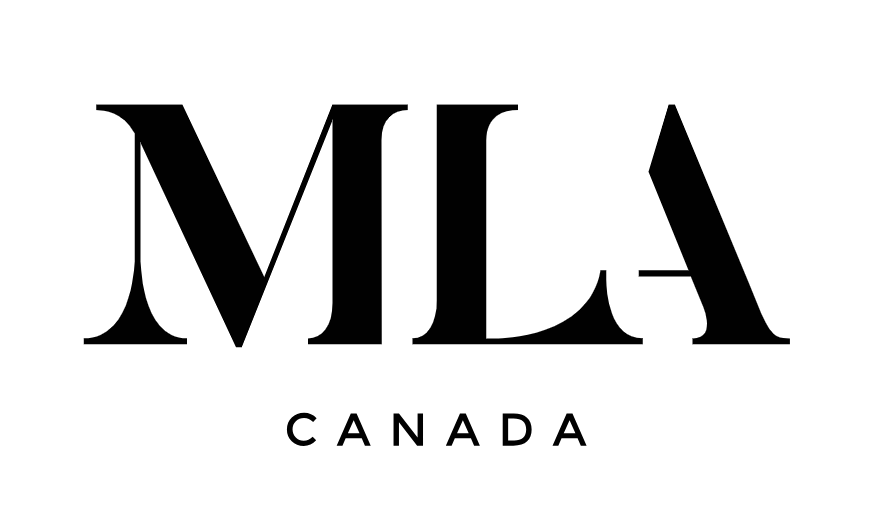Episode 457
Listen On: Apple Podcasts | Spotify
Recent changes to BC’s rental regulations are reshaping how landlords need to operate in Metro Vancouver. Cedar Coast Law Group Partner Mark Trischuk sits down with Adam & Matt this week to break down the latest regulatory updates and share proven strategies for navigating today’s rental landscape.
From critical changes to landlord’s “own use” provisions to new timelines for selling tenanted properties, this episode delivers essential updates and practical solutions for property owners.
How will upcoming regulation changes affect your ability to manage your rental property? What creative strategies are savvy landlords using to ensure smooth transitions when selling to end users? And with a growing trend of landlords offering two months’ rent for mutual agreements to end tenancy, is this approach the new blueprint for success in Vancouver’s evolving rental market?
Don’t miss this timely discussion packed with actionable insights for both new and experienced landlords!
Guest Information

Mark Trischuk
Mark Trischuk obtained his law degree from the University of Ottawa and was called to the British Columbia Bar in 2016. Mark joined as an associate in 2017 after articling at a litigation boutique in downtown Vancouver.
Mark practices in real estate, construction, insurance, and civil litigation. He has appeared many times at the BC Provincial and Supreme Court and handled hundreds of different litigation files over his career.
Mark also heads the conveyancing group at Cedar Coast Law Group. He has helped many clients successfully buy or sell their home, businesses, or commercial assets, or obtain or renegotiate their commercial lease.
Episode Summary
Keep your finger on the pulse of Vancouver's real estate market with our Live Wire email newsletter.
How to Sell a Tenanted Property in Vancouver Without Jeopardizing the Deal
Selling a tenanted property in Metro Vancouver comes with challenges that many landlords underestimate—until it’s too late. In this episode of the Vancouver Real Estate Podcast, we speak with Mark Trischuk, partner at Cedar Coast Law Group, who outlines exactly what landlords, sellers, and even buyers need to know before navigating the complex process of ending a tenancy.
Whether you’re a landlord trying to deliver vacant possession, a seller dealing with fixed-term leases, or a buyer wanting certainty at closing, this episode delivers essential guidance based on years of experience in real estate law in BC.
Keep your finger on the pulse of Vancouver's real estate market with our Live Wire email newsletter.
Can You Sell a Property with a Tenant in Place?
Yes, but not all tenancy situations are treated equally under BC law. If your property is tenanted and you want to provide vacant possession, everything hinges on whether the lease is fixed-term or month-to-month.
If the tenant is in a fixed-term lease, you cannot terminate the lease simply because you’re selling the property—even if the buyer wants to move in. You must wait until the lease expires or negotiate a mutual agreement to end tenancy.
If the tenant is month-to-month, you may serve a three full months’ notice if the buyer is moving in as their primary residence or if you intend to occupy the home yourself. But the process is technical and tightly regulated.
Keep your finger on the pulse of Vancouver's real estate market with our Live Wire email newsletter.
What the Residential Tenancy Act Says About Ending a Tenancy
Landlords in BC cannot evict tenants just because they want to sell a property. To end a tenancy for a buyer or landlord’s use, certain strict criteria must be met:
- The buyer (or landlord) must genuinely intend to live in the unit.
- The tenancy must be month-to-month.
- You must serve the correct notice, properly filled out, with three full months’ notice.
- If the notice is served mid-month, the clock doesn’t start until the end of that month, meaning you may effectively need to give closer to four months’ notice.
You also need a written request from the buyer confirming their intent to move in. Without that, your notice could be deemed invalid—even if your intent is legitimate.
Why You Can’t End a Fixed-Term Tenancy for a Sale
Fixed-term leases remain one of the biggest roadblocks to delivering vacant possession. Many sellers and agents assume that selling the property entitles them to end a lease early—this is incorrect.
If your tenant is in the fixed portion of the lease, you cannot terminate the tenancy for a buyer to move in. You’ll either need to:
- Sell to an investor who’s willing to keep the tenant, or
- Negotiate a mutual agreement to end tenancy, which often comes at a cost.
This has led to a trend of landlords offering two months of free rent (rather than the legally required one month) to secure a signed agreement and provide the buyer with certainty of possession.
Keep your finger on the pulse of Vancouver's real estate market with our Live Wire email newsletter.
Serving Notice: The Risk of Getting It Wrong
Even if you’re operating within a month-to-month lease, serving the notice incorrectly is one of the most common—and costly—mistakes. Use the wrong form, serve it on the wrong date, or fail to include the buyer’s written intent to occupy, and you may not be legally entitled to terminate the tenancy.
Sellers often assume that since they’re selling the home, they can automatically serve notice. But the Residential Tenancy Act doesn’t allow eviction based solely on the act of selling. It must meet specific occupancy-related requirements.
When Tenants Dispute the Notice
Tenants have 21 days to file a dispute with the Residential Tenancy Branch (RTB). A dispute doesn’t stop the sale, but it may delay vacant possession, putting the closing at risk.
Here’s how the process typically unfolds:
- Tenant files a dispute.
- RTB schedules a hearing (usually 8–10 weeks after the notice).
- Both parties submit evidence—contracts, letters, proof of service.
- The hearing occurs by phone and typically lasts 15–60 minutes.
- A decision is rendered within 30 days.
If the landlord wins and the tenant still won’t leave, a court order must be obtained and enforced by a licensed bailiff—not the police.
Keep your finger on the pulse of Vancouver's real estate market with our Live Wire email newsletter.
Legal Steps if the Tenant Refuses to Leave
Winning at the RTB doesn’t mean you can simply change the locks. If the tenant refuses to comply, you must:
- Apply the RTB decision to the BC Supreme Court.
- Obtain a writ of possession.
- Hire a licensed bailiff to enforce the eviction.
This process is expensive, time-consuming, and stressful. It’s also one of the most misunderstood elements of selling a tenanted property in Vancouver. Police will only attend to maintain the peace—they will not remove the tenant themselves.
Structuring Deals with Long Closings
Given the risks and tight timelines, Mark advises sellers to negotiate long closing dates whenever possible—ideally four months or more. This gives time to serve proper notice and address any disputes.
Buyers with firm financing timelines may not always allow long closings, but the more time you build in, the less likely you’ll encounter deal-breaking complications.
Keep your finger on the pulse of Vancouver's real estate market with our Live Wire email newsletter.
Addendums, Pets, and What You Can (and Can’t) Include in a Lease
Lease agreements can include many custom clauses, but they must not contradict the Residential Tenancy Act. Examples of enforceable addendums include:
- No smoking
- No pets (in private rentals)
- No unauthorized renovations
However, you cannot include clauses that override provincial law, such as:
- Shortening notice periods
- Evicting due to having children
- Bypassing rights to dispute
If any clause is deemed to “contract out” of the Act, it is considered void and unenforceable.
Keep your finger on the pulse of Vancouver's real estate market with our Live Wire email newsletter.
Why Early Legal Advice is Critical
One of the most important messages from the episode is simple: engage a real estate lawyer early. Most failed possession cases happen because landlords wait until it’s too late to seek legal advice—after serving incorrect notices or facing disputes days before closing.
Lawyers can:
- Craft language for purchase contracts
- Review leases to assess termination eligibility
- Serve notices professionally
- Represent you at RTB hearings
- Handle urgent applications for possession enforcement
Legal fees are often modest compared to the financial risk of a delayed or failed transaction.
Keep your finger on the pulse of Vancouver's real estate market with our Live Wire email newsletter.
FAQ: Selling Tenanted Property in Vancouver
Can I sell a property with a fixed-term lease?
Yes, but the buyer must assume the tenant. You cannot terminate a fixed-term lease for buyer use.
How much notice do I need to give a tenant for buyer occupancy?
You must give three full months’ notice after receiving a written request from the buyer.
What happens if the tenant disputes the notice?
The Residential Tenancy Branch will hold a hearing. This may delay possession and risk the closing if not managed properly.
Can I pay a tenant to leave early?
Yes. Mutual agreements are common, and some landlords offer two months’ rent to secure possession without disputes.
What if the tenant refuses to leave after a legal order?
You must get a writ of possession from BC Supreme Court and hire a licensed bailiff to enforce it.
Last updated April 17 2025 by Matt Scalena PREC
Keep your finger on the pulse of Vancouver's real estate market with our Live Wire email newsletter.
Episode Host

Adam Scalena
Adam is a full-service realtor, specializing in Vancouver’s best areas. His systematic approach to real estate and dedication to his clients has consistently placed him within the top 10% of realtors operating within Greater Vancouver.

Matt Scalena
Matt is real estate obsessed and considers himself a lifelong student of the Vancouver real estate market. As a co-manager of the Scalena Real Estate team, Matt prides himself on expertly advising buyers and sellers on all aspects of the fast-paced, dynamic Vancouver real estate market. He is present at every stage of the process, from that first phone call or email right through to when keys are exchanged between sellers and buyers.








